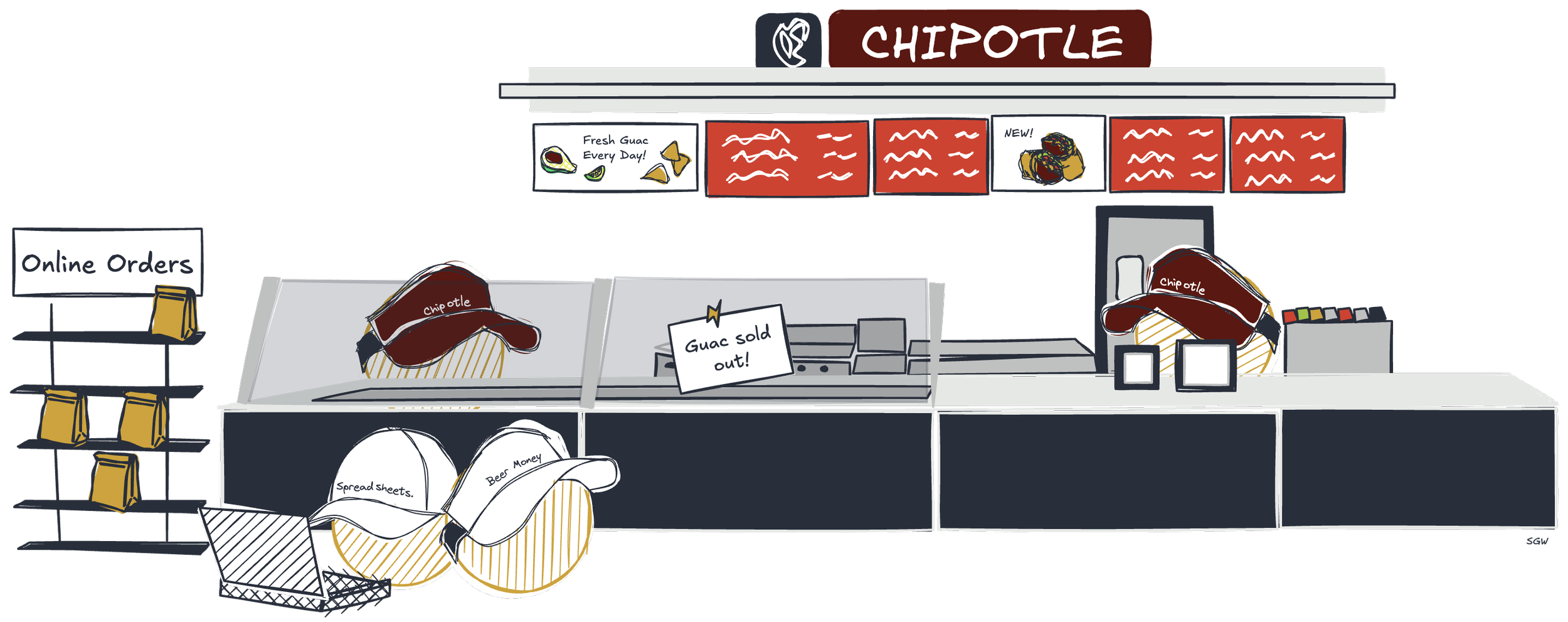Maybe Make It Harder?
One of the more interesting recent discussions our team had was about our ridiculously cute and resoundingly fierce children’s clothing company Rylee + Cru and the fact that its Memorial Day Sale sales were down almost 20% year-over-year. Because on its face, that seems like a bad fact.
But context matters, and the context is that total sales year-to-date were up almost 30% year-over-year at the time and that traffic to the site for the sale was plus 25%. So what happened is that the brand had so much interest and the company had been so successful selling through the inventory it ordered at full price, that it didn’t have nearly as much inventory remaining in stock to feed the Memorial Day Sale.
Is this good or bad?
On the one hand, the company absolutely left money on the table this year because it’s clear that if it had ordered more inventory, it would have had higher sales. So, that’s bad.
Also, we heard from customers trying to order out of stock items that they were frustrated. That’s also bad.
But scarcity is a spectacular driver of long-term value and it may be the case that next year, shoppers who missed out on items they wanted waiting for the sale will shop sooner and at full price. That’s good.
What’s also good is the working capital efficiency of not being left with a bunch of overstock at the end of the season that might need to be thrown away or marked down – tactics that can drive top and bottom line growth but be negative to cash flow and the brand.
In other words, sometimes it’s better for a business to make things a little harder on its customers.
I am reminded here of Trader Joe’s and the fact that it does not offer online shopping or even curbside pick-up. Because if you want your shishito crisps and cacio e pepe puffs, you are going to need to go to the store and go inside.
Why does Trader Joe’s do this despite definitely leaving money on the table?
I suspect because it’s highly efficient. Not only is it less expensive to a business to have the customer handle logistics than to do it for them, but it’s well known that shoppers on impulse are much more profitable than shoppers with a list (and TJ’s gives one a lot of chances to be impulsive). Further, if you’ve ever been to a Chipotle where they were sold out of guacamole if you stood in line, but could get it if you placed an order online from inside the store (because they fulfill the orders from two different food bars), then you know that it’s apparently difficult (and incredibly frustrating to the customer) to keep track of in-stock positions at a micro level and that that can really piss people off. If you don’t even let people order online, then this makes that a non-issue.
So what was interesting about our discussion about Rylee + Cru was talking through how we might think about ordering inventory in the future, calibrating and optimizing between these extremes. Because while I appreciate not wanting to leave money on the table, maybe also make it harder?
– Tim
Sign up below to get Unqualified Opinions in your inbox.
The information, opinions, and views presented in this publication are provided solely for general informational and educational purposes. They are of a general nature, have not been tailored to the specific circumstances of any individual or entity, and do not constitute a comprehensive statement of the matters discussed. This material should not be interpreted or relied upon as investment, legal, tax, accounting, regulatory, or other professional advice, and nothing in this publication is intended to be or should be construed as such. You should obtain advice from your own professional advisors regarding the applicability of the information to your particular circumstances.
The views and analyses expressed are those of the author and do not necessarily represent or reflect the views, opinions, policies, or positions of Permanent Equity Management, LLC, its officers, directors, employees, affiliates, or portfolio companies, or of any person or entity with whom the author may be affiliated. Permanent Equity Management, LLC makes no representation or warranty, express or implied, as to the accuracy, completeness, timeliness, or suitability of the information contained herein and expressly disclaims any liability for errors or omissions.
This publication is not, and should not be construed as, an offer to sell, a solicitation of an offer to buy, or a recommendation of any security, financial instrument, or other product. It does not form the basis of any contract and does not create a fiduciary, advisory, or client relationship with Permanent Equity Management, LLC. Any examples or references to third-party content are for illustrative purposes only and do not constitute an endorsement. Permanent Equity Management, LLC is not responsible for the availability, accuracy, or content of third-party materials. Past performance is not indicative of future results. Any forward-looking statements are inherently uncertain and subject to change.


